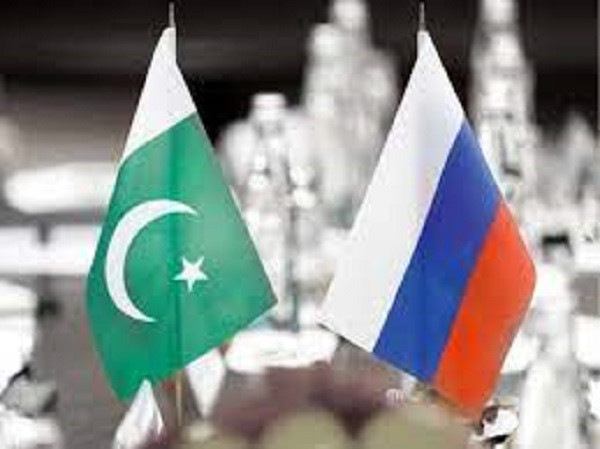
The recent visit of a Russian delegation to Pakistan has barely thawed the icy relations between the two countries, which had stalled after the PTI government signed only memorandums of understanding (MoUs) but failed to reach any substantial deals.
During the PTI regime, Russian President Vladimir Putin had offered then-prime minister Imran Khan discounted oil. However, after Imran Khan's removal, the oil deal between Pakistan and Russia could not move forward.
Petroleum Minister Musadik Malik informed Finance Minister Ishaq Dar in a high-level meeting that Pakistan should take advantage of Russian oil.
However, sources revealed that the Russian side was displeased with the petroleum minister for publicly discussing sensitive negotiations through press conferences.
President Putin had planned several visits to Pakistan in the past but repeatedly postponed them as the two nations failed to finalise significant agreements. Though various MoUs were signed, they only signalled a minor thaw in relations, hindered by pressure from the United States.
Pakistan and Russia had collaborated on several mega-projects, including the Pakistan Gas Stream Project, which was shelved due to US sanctions concerns. The structure of the gas project was altered nearly six times, but the fear of US sanctions frustrated Russia.
During the recent visit, the Russian delegation expressed renewed interest in oil and gas exploration in Pakistan. They also showed willingness to collaborate with the OGDCL for joint ventures.
Sources in the oil and gas sector indicated that Russia might also join Pakistan's offshore oil and gas exploration ventures.
The Pakistani government is offering incentives to companies interested in offshore drilling in the Karachi area. However, officials emphasised that the US plays a significant role in shaping Pakistan-Russia relations.
While the US allowed Pakistan to import Russian oil after the Ukraine war, it remains reluctant to permit cooperation in other areas, including offshore projects and the LNG pipeline.
Russia had previously proposed an offshore gas pipeline running from Iran to India and Bangladesh. Although studies were conducted, the project was abandoned due to strained relations between Russia, Iran, and the US.
Regarding any significant progress in the wake of Russian Deputy Prime Minister Alexei Overchuk's visit, industry sources suggest that several proposed projects remain stalled due to US pressure.
Pakistan's fragile economy poses a major challenge. The country cannot afford to antagonise the US while relying on the IMF for a bailout.
However, despite these constraints, Pakistan is eager to strengthen its ties with Russia across various sectors.
The Pakistani government has developed a three-pronged strategy, focusing on government-to-government (G2G) agreements, business-to-business (B2B) cooperation to foster trade and investment, and frameworks to ensure safe trade operations.
The State Bank of Pakistan (SBP) has already cautioned the government about the risks of doing business with Russian entities under sanctions.
However, the SBP noted that countries like Turkey continue to trade with Russia using local currencies. Pakistan is exploring similar strategies, which will be discussed by a delegation in an upcoming visit to Russia.
Rail connectivity is also a priority, with three key routes being considered to link Pakistan with Russia and Central Asia. These include upgrading the Quetta-Taftan rail network, which saw an MoU signed in June 2024.
A bilateral meeting is expected this month to implement the MoU and identify areas of cooperation.
The second route, the Kohat-Kharlachi rail line, will connect Central Asian republics via Afghanistan, pending a feasibility study. The third project, the Minelik Express, will connect Reko Diq with Gwadar, providing access to Azerbaijan and Russia. This direct route to the Arabian Sea would significantly reduce mineral transportation costs.
The SBP clarified that transactions with non-sanctioned entities would not face issues, though banks remain cautious due to the sanctions regime and Financial Action Task Force (FATF) compliance concerns.
The SBP has also suggested exploring a barter trade mechanism to bolster ties with Moscow.
President Putin had previously offered Pakistan increased energy supplies, including crude oil, during a meeting with Prime Minister Shehbaz Sharif on the sidelines of a Shanghai Cooperation Organisation (SCO) summit in Astana.
This marked the second meeting between the two leaders, following an earlier encounter at the September 2022 SCO summit in Samarkand.
Pakistan remains keen to foster a close relationship with Russia as part of its strategy to diversify foreign relations despite pressure from Western nations.
Last June, Pakistan received its first shipment of Russian crude oil under a new agreement between the two countries.

1718122402-0/will-ferrel-(1)1718122402-0-405x300.webp)


1726819153-0/BeFunky-collage-(18)1726819153-0-165x106.webp)



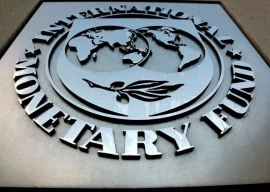
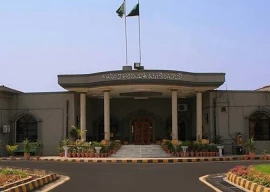
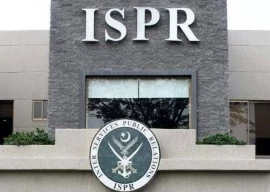
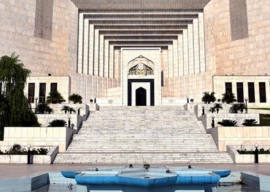






COMMENTS
Comments are moderated and generally will be posted if they are on-topic and not abusive.
For more information, please see our Comments FAQ